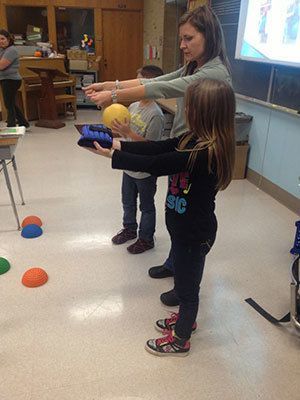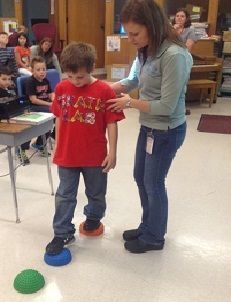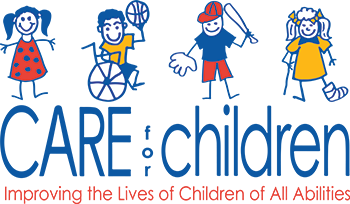Disability Awareness

Disability Awareness is part of CARE for Children's Community Outreach efforts. The program aims to promote acceptance for children with physical and developmental disabilities. CARE conducts presentations upon request for schools in McKean and Potter Counties, as well as presentations for civic and professional groups.
The purpose of CARE’s Disability Awareness program is to:
- Enhance tolerance and acceptance of people with disabilities;
- Create a culture which focuses on ability;
- Address commonly asked questions about disabilities;
- Present disability as part of life; and
- Help children view people who appear different from them in a positive way.
CARE will also visit classrooms of students with disabilities at a parent or teacher request. CARE presents to civic groups and organizations, and businesses to raise awareness of disability issues.

People First Language
People with disabilities constitute our nation’s largest minority group, which is simultaneously the most inclusive and the most diverse! Everyone’s represented: people of both genders and of all ages, as well as individuals from all religions, ethnic backgrounds, and socioeconomic levels. Yet the only thing people with disabilities truly have in common with one another is dealing with societal misunderstanding, prejudice, and discrimination.
The “disability community” is the only minority group which anyone can join, at any time. Some join at birth. Others join in the split second of an accident, through illness, or by the aging process. If and when it happens to you, will you have more in common with others who have disabilities or with family, friends, and co-workers? And how will you want to be described? How will you want to be treated? Disability issues affect all Americans.
The only places where the use of disability labels is appropriate or relevant are in the service system and in medical or legal settings. Children with disabilities are children, first. The only labels they need are their names! Labels have no place—and they should be irrelevant—within our families, among friends, and within the community.
Words are powerful. Old, inaccurate, and inappropriate descriptors perpetuate negative stereotypes and attitudinal barriers. Language is a powerful tool that should be used to create understanding, tolerance and opportunity. Children and adults with disabilities are unique individuals with unlimited potential to achieve their dreams, just like all Americans.
—— Copyright 2004 Kathie Snow, used with permission.

